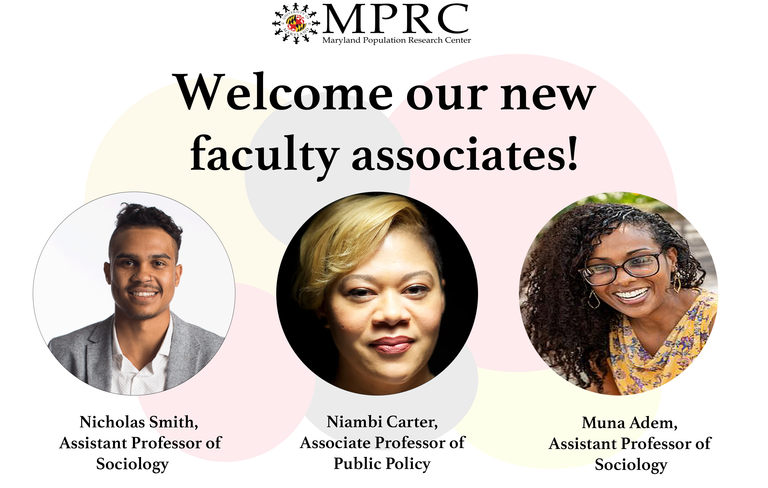MPRC welcomes three new Faculty Associates

Niambi Carter, Public Policy, is concerned with migration as a feature of Black life, most importantly, the process of self-determination. How America helps, hinders, or honors those migrants’ claims for relief is central to her work, which is primarily domestic in orientation but also international. At the same time, she looks at contemporary and historical patterns of migration not only as human movement but also as political strategy. As migration increasingly results from climate change, she is interested in what this means for Black people and how they are treated in the refugee context.
Muna Adem, Sociology, examines how immigration-driven diversity influences race relations, group divisions, and ethnoracial inequalities. Her work is grounded in theories of race and ethnicity, group processes, collective action and immigrant incorporation. Methodologically, she uses a range of strategies, including advanced statistical techniques, network and text analysis, behavioral and survey experiments, and mixed-methods. She is also keenly interested in producing and sharing original data sets that help us resolve empirical puzzles on the role of ethnoracial diversity in novel and rigorous ways.
Nicolas Smith, Sociology, conducts research spanning three interrelated areas that lie at the intersection of medical sociology, social psychology, and race-ethnicity: racial residential segregation and health; stress-related mechanisms of health inequalities; and social network activation during health-related crises. He employs multiple quantitative methods and leverages U.S. Census and individual-level survey data and his findings problematize unidimensional frameworks of racial residential segregation and raise the possibility that living in segregated communities may offer advantages and disadvantages, particularly for Black Americans.
